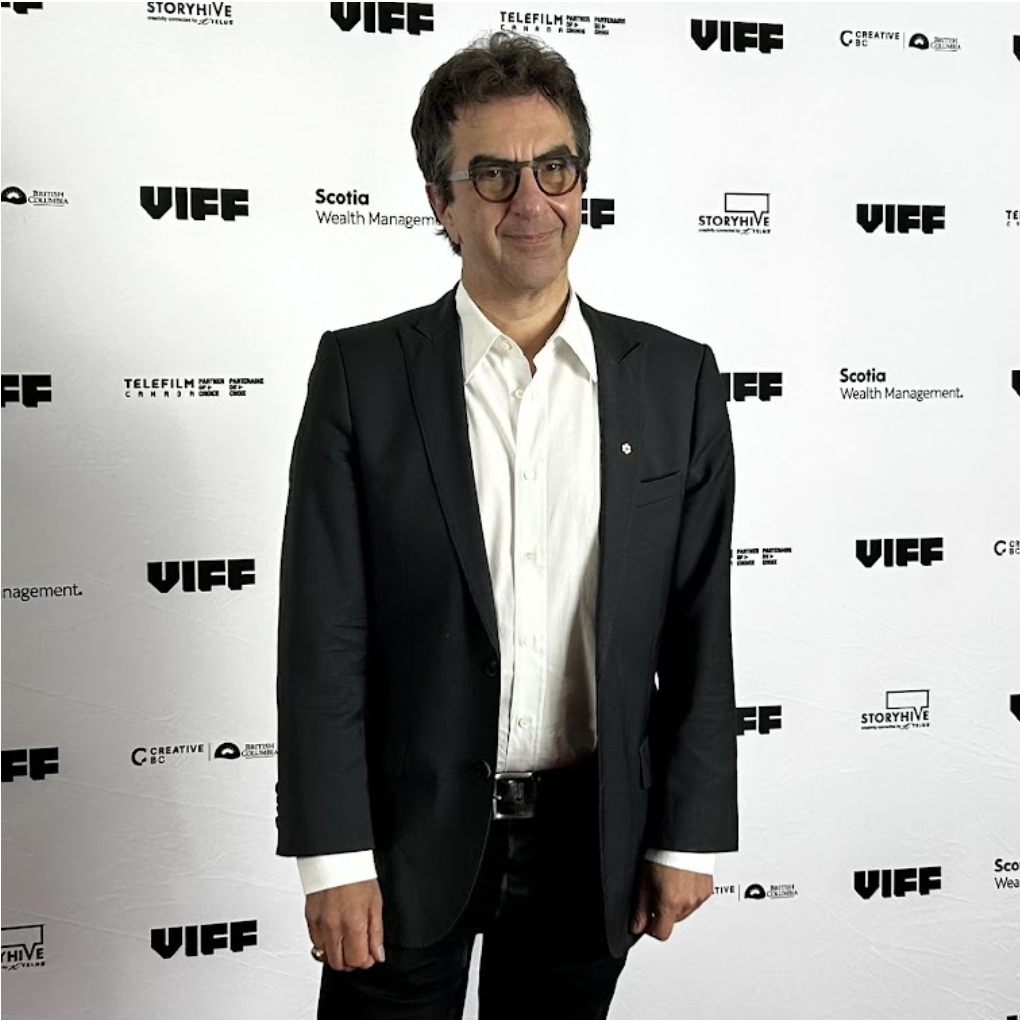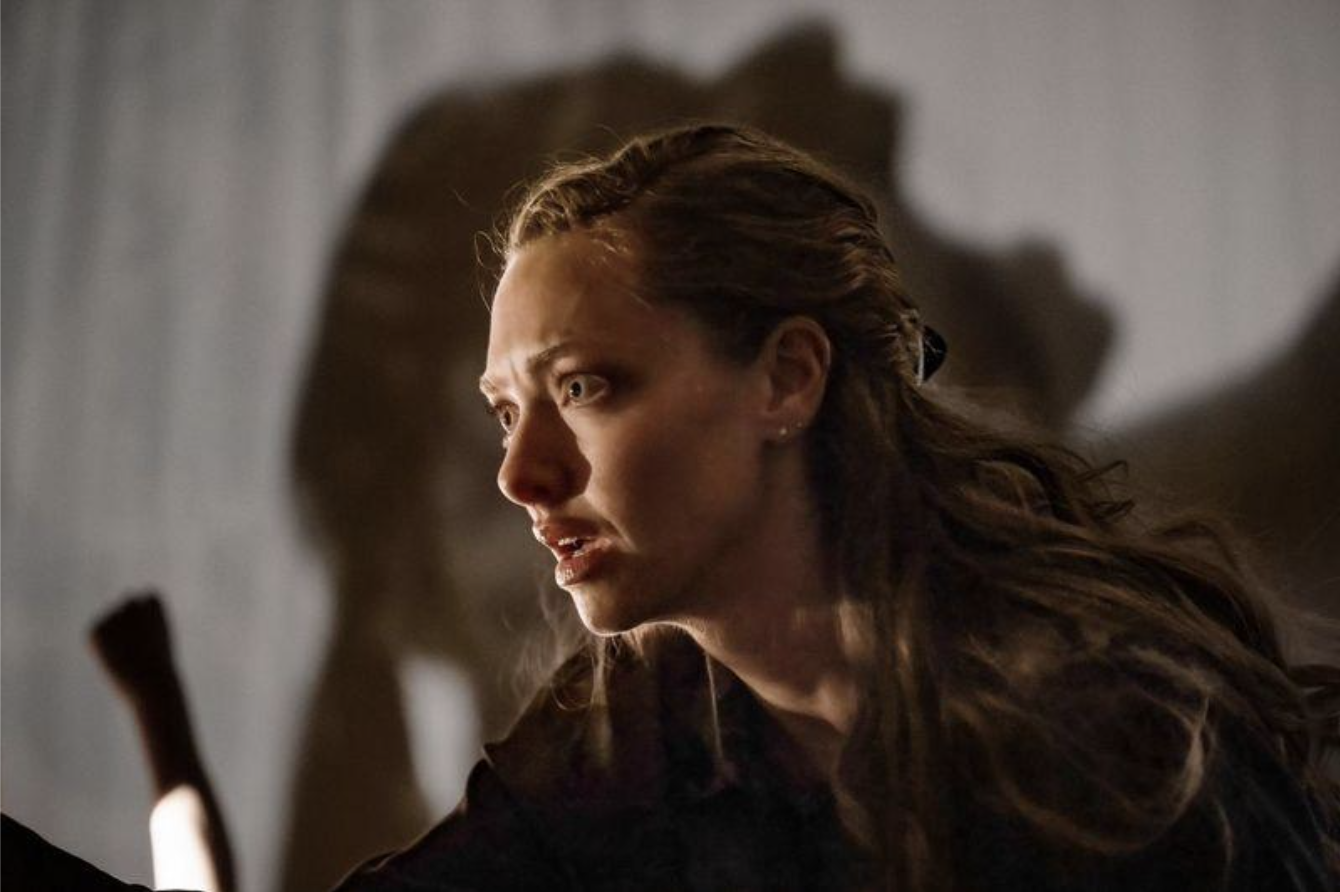There is one world-renowned Canadian filmmaker who does set most of his movies in Canada. Atom Egoyan is a very skilled writer and director who has received both public and critical success including Academy Award nominations.
Seven Veils is Atom Egoyan’s newest movie. It recently had some very special screenings during the Toronto International Film Festival (TIFF) as well as the Vancouver International Film Festival (VIFF).
Hollywood North was fortunate to have a short conversation with Atom Egoyan and attend the VIFF screening and Q&A.
HNMAG: How can we get more great movies set in Canada so the rest of the world can celebrate what Canada really has to offer?
Atom Egoyan: I think it’s changing. I do know that Chloe was probably the first major film that was set in Toronto, as Toronto. That was in 2008-2009, when we shot that. The film was originally set in San Francisco. We went there to scout it. Some of my favorite films are shot in San Francisco but how are you going to make this movie different? So I thought why don’t we make it in Toronto? You are seeing now that people are opening up but there are technical differences with the metric system that might be confusing. It’s not a hard sell anymore.
HNMAG: Was part of the hard sell ourselves? Do we lack confidence in how attractive Canada is to the rest of the world?
Atom Egoyan: Absolutely. We set The Sweet Hereafter in British Columbia. Part of that was for a technical reality. In BC lawyers are allowed to take up to a twelve percent contingency. It made sense to do that. It made sense to set it here as part of the story.
HNMAG: Was the law the same in Upstate New York where the book was set?
Atom Egoyan: Generally in the US, that’s how lawyers work. It was really fortunate that fit into the narrative.
HNMAG: You moved to BC when you were really young.
Atom Egoyan: Oh yes, three years old.
HNMAG: Why did your parents pick Victoria?
Atom Egoyan: When they moved to Canada they didn’t want to be living with the Armenian community in Montreal. They wanted to spike out on their own. They moved out West. They originally moved to Vancouver, then some work opened up on the Island, so that’s when they moved to Victoria.
HNMAG: In 1996 you directed the Opera Salome.
Atom Egoyan: Yeah, in Vancouver.
HNMAG: What was that like?
Atom Egoyan: It was a thrill because it’s a great play. I was just pinching myself at the time. I got to explore this amazing drama with this incredible score. I started doing plays in high school in Victoria and it was my first gig as a playwright in Toronto. Then I started making films. This was a chance to return to the world of theatre. This film is trying to overlap the two worlds.
HNMAG: Seven Veils is so intense. I was wondering if that translated from some of your experiences.
Atom Egoyan: It was super intense just from the subject matter of the material. I did it between Exotica and The Sweet Hereafter there were themes in those two films that were dealt with quite discreetly but with the opera I was able to address it much more viscerally.
HNMAG: Did you know any German when you were directing Salome?
Atom Egoyan: No, that’s the interesting thing when you know music, you don’t need to know the language. I love the sound of it for the opera.
Atom Egoyan remounted Richard Strauss’s opera Salome in 1996. It was performed at the Vancouver Playhouse. His new movie Seven Veils is about a director taking on that same task. It was special to experience a screening during VIFF at that same playhouse.
Atom Egoyan then added to that experience with a questions and answers period after the movie.
“We had a special screening at TIFF at the opera house where we actually shot it. I didn’t think that could be matched. This is really a special night having done the opera here on this stage and showing it to you here is really powerful. The sound system is really good too.”
“I made this opera between Exotica and The Sweet Hereafter which are two films that are discreetly dealing with the idea of abuse. When I had the idea of how violence works in this story, in the play, and then in the opera, I just felt it was a chance to unleash something. The text by Wild unleashes something that he doesn’t usually do in other works. He purposely uses this language to talk about something that can’t be obtained. It’s an incredible piece of musical theatre.”
“It’s a whole chain of men talking about this story. The Bible, all these 19th-century writers who are all men, Strauss, the character Charles, Me..well I’m not Charles but still there I was, remounting it. I let Jeaninie come and re-own that. That was interesting to explore.”
Haunting is an excellent word when it comes to relating to Atom Eyoyan movies. It’s particularly apt for some of his earlier work such as The Adjuster, Exotica, and The Sweet Hereafter. The stories, characters, and mostly the emotions stay with you. You might have trouble sleeping because you are thinking about how Noah (The Adjuster) puts so much of his passion and intimacy into his insurance claimants. The intensity of the relationships between Eric, Christina, and Francis (Exotica). As well as the complexity that was created. Even more so, are the impossible choices that Nicole (The Sweet Hereafter) must come to terms with before and after the horrific accident.
What is it about those movies that create this haunting? Is it the time taken by the characters to feel what is happening before they verbally express that emotion? Is it the cinematography? Is it the editing?
Maybe it’s all of it.
HNMAG: This movie is going to sit with us for a long time and your approach of a non-linear narrative of taking pieces and eventually them all coming together. Having the audience come along on that journey. Is that what leads to that thought-provoking reaction to Seven Veils or any of your other movies?
Atom Egoyan: These films are structured with an emotional response to the material. The challenge here was the placement of the voice-over. I don’t usually use voice-over text but this time it was very integral to the telling of her story. That shifted things from the other films where there is more silence. People are speaking a lot more than in some of the other films. She’s a director and she needs to explain in her strange way. We don’t know on what level her direction is. The way she is working with the performers is not the normal way. There were a lot of different tones and that was the tricky thing. Balancing the tone and the space between dialogue. I’m always fascinated with the awkwardness of that. Often we fill it up to make it fluid but it’s interesting when we don’t and we see people resting with things. You write it a certain way and then you edit it and that becomes re-writing. Then you are working with music. In this case, we have a lot of the score to begin with.
HNMAG: Was there a lot of changes that happened in the editing?
Atom Egoyan: Yes there were. The podcast was supposed to be one scene but it felt better to be weaved through. There were also the flashbacks with the forest. There were things that were shifting but not as much as The Sweet Hereafter, as that was completely reconstructed in the editing. Because you’re working with voice-over, you’re reworking as well.
HNMAG: Some people were laughing at some scenes. Was that supposed to be funny?
Atom Egoyan: Oh yeah, I hope there was laughter. It’s totally ok to laugh. Some screenings are dead silent and some have laughs throughout. That’s totally OK. It is outlandish, the way she is behaving. Some of it is really funny. There are moments where the music builds up and then it goes to silence, so it’s displaced. You might find that funny or not. That’s why it’s good to watch it with a group of people. When someone laughs then that gives you permission to laugh. It’s not given to you explicitly. It’s like The Adjuster, there is a lot of dark humour and I’ve been to screenings where people are dead silent.
It doesn’t need to be interpreted a certain way. It makes it uncomfortable.
In Exotica, Christina is first seen dressed in a schoolgirl’s uniform dancing to the equally haunting song Everybody Knows by Leonard Cohen. Of course, there is much more to that outfit and the perversion that is initially implied. As there is with this classic Canadian tune. Leonard Cohen was one of the greatest songwriters in the world and there are many layers to that single track.
Leonard Cohen studied writing under Hugh MacLennan.
Before MacLennan became Canada’s foremost novelist, he wrote two poorly received novels. Neither of them was set in Canada. His wife Dorothy convinced him to write about what he knew best and tell Canadian stories. That was the breakthrough. Of course, he wrote amazing books that earned him the Governor General’s award.
In The Sweet Hereafter, the theme song was by a band that wrote more authentic Canadian stories than any other, The Tragically Hip. Sarah Polley makes Courage her own. It reflects the theme of the movie really well. Courage was dedicated to Hugh MacLennan and used the verse from his novel The Watch That Ends The Night.
“But that night as I drove back to Montreal I at least discovered this: that there’s no simple explanation for anything important any of us do, and that the human tragedy, or the human irony, consists in the necessity of living with the consequences of actions performed under the pressure of compulsions so obscure we do not and cannot understand them.”
Courage (for Hugh Maclennan) Lyrics:
There’s no simple
Explanation
For Anything important
Any of us do
And, yeah, the human
Tragedy
Consists in
The necessity
Of Living with
The Consequences
Under Pressure
For Nicole (Sarah Polley), it’s a huge challenge to find that courage when she couldn’t before but it does lead to a lot of pain coming with huge consequences. It’s not a coincidence that these Atom Egoyan movies use amazing Canadian songs that reflect his own haunting and provocative style.
This is not a spoiler, it’s from the New Testament! Salome does the dance of Seven Veils for her stepfather. The title is not only appropriate but a wonderful metaphor. As Salome does away with one veil or layer at a time, she becomes more vulnerable and more exposed. You can’t see what it all means until she is lying naked, exhausted with nothing left to give. It’s from that inspection and then retrospection you start to question the most important elements of the story.
Setting a movie in Canada is not a practical or patriotic motivation for Atom Egoyan. Like Hugh MacLennan, Leonard Cohen, and Gordon Downie (Tragically Hip), it was about telling an authentic story with specificity. This is our home and our best art reflects that.



Fantastic in-depth discussion!